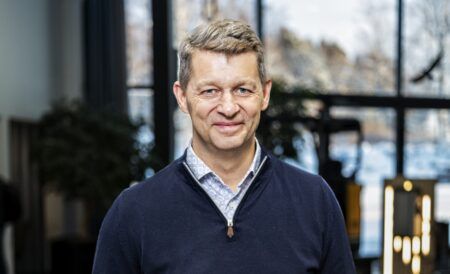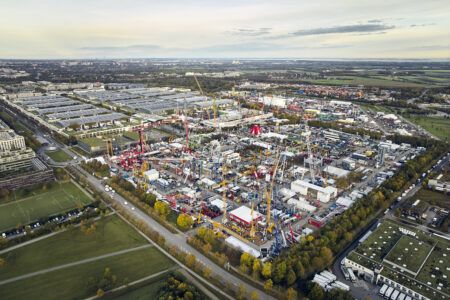Marco Righi, founder and CEO of Kaitek Flash Battery, analyses emerging battery technologies, updates to consolidated technologies, possible applications in the various electric mobility sectors and prospects for the accumulator industry
Kaitek Flash Battery is currently the best selling lithium battery company in Italy, one of the top three lithium-ion battery companies in Europe and at the centre of the challenge between China and the West for the control over the strategic component of electric vehicles. Contrary to what you might think, Kaitek Flash Battery (52 employees, of which 25 are involved in research and development, and customisation) is not focusing on cars, instead, it produces tailor-made accumulators for the industrial sector.
The accumulators are manufactured in small and medium series for special vehicles such as AVGs/LGVs for material handling, vehicles for deliveries in old town centres, construction machinery, agricultural machines, GSE and boat. In Flash Battery nothing is standardised: the entire process, from preliminary consultancy to final testing, is the result of a series of meticulous one-to-one steps with the customers to fully understand their needs and create 100% customised products.
Interconnectivity and updated on-the-air
The cells are selected on the market according to the required performance. They are then assembled by designing the sophisticated control electronics that “brings them to life”. The chemistry of the cells is just the starting point, but there are a lot of other essential components that are packed into the battery. This includes the heat control systems, insulation controls, BMS, fast charge communication boards, monitoring.
Remote monitoring is an additional value developed by Kaitek Flash Battery. Flash Battery features a remote monitoring system checking each installed battery on a daily basis. It gathers data on batteries operation and process them for easy viewing. Isn’t that enough? The software also sends daily alerts to prevent any kind of faults, enabling the condition of each lithium battery to be determined at any time and everywhere.
Flash data centre
Every living moment of the 5,000 batteries sold and interconnected is recorded and stored on a database that has no equals in the industrial world, the Flash Data Centre. This is one out of the several reasons why the company from Reggio Emilia has taken the lead in the European Union I.P.C.E.I. project. Data analysis allows Flash Battery to improve predictive operations; but also, to act remotely with updates that optimise vehicle parameters based on the customer’s specific use”.
The next five or six years will see further improvements to the market of chemistry and electronics, but the major quantum leaps are not yet on the horizon. In the laboratory, experiments with lithium-sulphur and lithium-air prototypes and even organic batteries are already multiplying.
Soon the challenge will be between NMC chemistry (nickel, manganese, cobalt), the most common in the car sector, and LFP chemistry (lithium, iron, phosphate) which prevails in the industrial sector. Batteries are not particularly stressed by car use. They need high energy capacity and fast recharge speed. Kaitek Flash Battery industrial applications aim for duration and safety, mainly through LFP chemistry.
Batteries with LFP chemistry now reach about 4,000 recharging cycles; on a car that would mean a lifetime of 30 years. Even if LFP batteries have a slightly lower energy capacity, a slightly slower recharge time and a more complex electronic management, they also have several advantages. As a matter of facts, they are less expensive, they do not contain cobalt, they are safer, and they are less subject to runaway phenomena. In a not so distant future, we will probably reach a convergence; supercars will continue to adopt NMC chemistry, whereas utility cars could benefit from an improved LFP chemistry.
Electric battery boom in agriculture and construction
During the past one and a half years, there has been a boom in the agricultural and construction machinery sectors. But can they make a large-scale switch to becoming fully electric? This can be possible, but not for every use. It will certainly happen where use is intermittent.
For continuous use, the idea is that there will be more hybrids with thermal or hydrogen fuel cells supporting the batteries. These latter technologies are already being adopted in the shipbuilding sector. For example, Kaitek Flash Battery equips Transfluid nautical powertrains which have already been type-approved for large ships.
The lockdown influence
Kaitek Flash Battery has only been affected marginally by the lockdown. They keep fully working to assist the automatic machines involved in material handling in the food industry, which have been exposed to an unprecedented tour de force over the past few weeks. Food industry’s battery consumption is, in fact, reaching record levels.
However, the pandemic situation has not been underestimated. Smart working is active for all Flash Battery offices; even R&D department works independently from home and come to the company once a week to test the hardware part of their research. In addition, the company decided to use part of this period to actively focus on the implementation of online training activities for dealers and customers. Training and knowledge are essential to fully understand the battery sector and to develop win-win strategies for the future.
Past, present and future
Kaitek Flash Battery was founded in 2012 with the idea of bringing innovation to industrial applications in the field of lithium batteries.
The idea quickly became a thriving reality. Today, Kaitek Flash Battery ranks among the top 3 European players in the field lithium batteries for industrial purposes. It identifies itself as the lithium battery, in Italy, with the highest charging speed and maintenance-free, thanks to its proprietary remote-control system.
Its great commitment to research and development and product customisation have paved the way for a flourishing and continuous growth and increasingly advanced technology. Kaitek Flash Battery wants to be the leader in the 4.0 battery industry for industrial machines and electric vehicles with strong needs for customisation.
Kaitek Flash Battery is a whirlwind of ideas, know-how and innovation, with the right ‘charge’ for the present and eyes open to the future.





